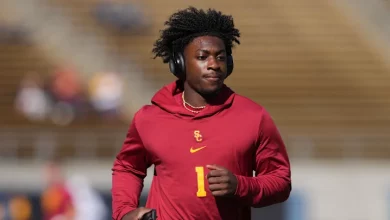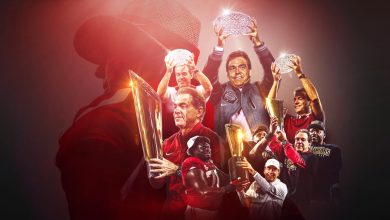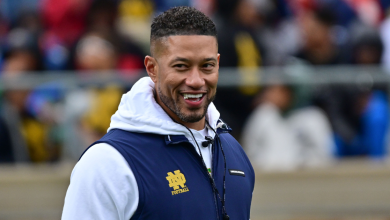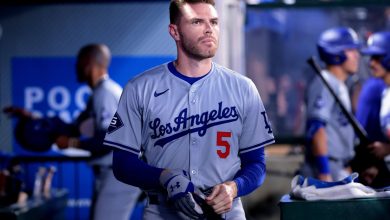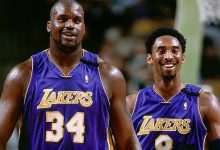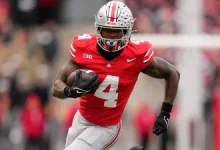The LA Lakers are reportedly set to be sold in an NBA record-breaking $10 billion deal, making it the most expensive sports franchise sale in history.
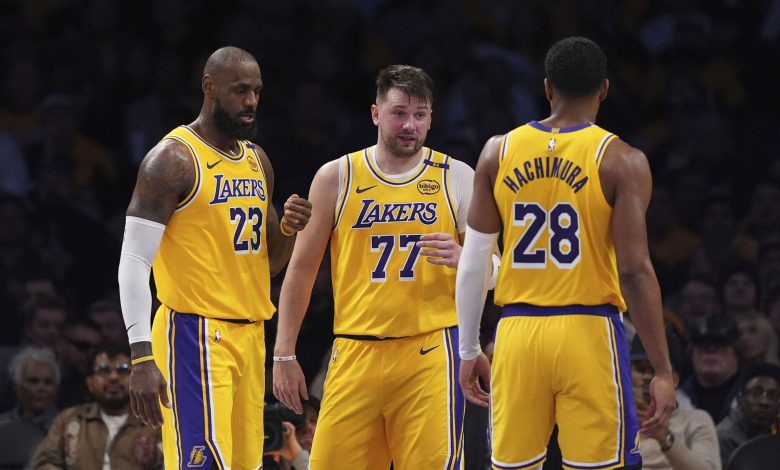
The Los Angeles Lakers, one of the most storied franchises in NBA history, are reportedly on the verge of a historic sale valued at approximately $10 billion. This figure not only represents a significant milestone in sports franchise valuations but also sets a new benchmark for the business of professional sports. In this comprehensive analysis, we will explore the details surrounding this potential deal, its implications for the NBA, the Lakers’ legacy, and what this means for the future of sports franchise ownership.
The Lakers: A Franchise Built on Legacy
Founded in 1947, the Los Angeles Lakers have established themselves as one of the most successful and recognizable teams in NBA history. With 17 NBA championships, the Lakers are tied with the Boston Celtics for the most titles in NBA history, a testament to their rich legacy of winning and star power.
The franchise’s history is intertwined with legendary players like Magic Johnson, Kareem Abdul-Jabbar, Shaquille O’Neal, Kobe Bryant, and most recently, LeBron James. The Lakers’ brand transcends basketball, making them a global icon in sports and entertainment.
The franchise’s location in Los Angeles, a major global city, combined with its history of success, has always contributed to their high valuation. The Lakers have a massive global fanbase, lucrative media deals, and valuable real estate assets, all of which contribute to their financial strength.
The Reported Sale: Details and Context
Recent reports suggest that the Lakers may be sold in a deal valued at approximately $10 billion, a figure that would smash previous records for sports franchise sales. While official confirmation has not yet been announced, the reports cite credible sources, indicating that negotiations are at an advanced stage.
Why $10 Billion?
The valuation reflects the Lakers’ unique position in the sports world—historic success, global brand, lucrative media rights, high-profile ownership, and a prime market. The potential sale price surpasses previous records, which include the Manchester United sale for around $4.2 billion and the NFL’s Denver Broncos sale for approximately $4.65 billion.
Potential Buyers:
While specific buyers have not been publicly named, speculation centers around wealthy individuals, investment groups, and entertainment conglomerates interested in owning a premier sports franchise. The high valuation suggests that the buyer would need significant financial resources and strategic interests in sports, entertainment, or media.
Historical Context of Sports Franchise Valuations
The valuation of sports teams has seen exponential growth over the past two decades. Factors driving this include media rights deals, global branding, corporate sponsorship, and the increasing commercialization of sports.
Previous Record-Holders:
- Manchester United: Sold in 2012 for approximately $3.1 billion, the highest at the time.
- New York Knicks: Valued at around $6 billion in recent assessments, making them one of the most valuable NBA teams.
- Los Angeles Lakers: Valuations have varied but were estimated at around $3.2 billion in 2020.
- Denver Broncos: Sold to Rob Walton in 2022 for about $4.65 billion, the highest NFL sale.
The Lakers’ potential $10 billion valuation would double their previous worth estimates, reflecting both the franchise’s historic stature and the current momentum of sports valuations.
Factors Contributing to the Lakers’ Record Valuation
Several key factors contribute to the Lakers’ high valuation:
1. Historical Success:
Their 17 NBA titles and storied history attract fans globally, translating into lucrative merchandise sales, media rights, and sponsorship deals.
2. Star Power and Marketability:
The franchise’s association with legends like Magic Johnson, Kobe Bryant, and LeBron James enhances its brand value. The Lakers are a magnet for high-profile players and celebrities.
3. Media Rights and Revenue Streams:
The Lakers benefit from local and national media deals, with their games broadcast to millions worldwide. Their games are among the most-watched in the NBA.
4. Global Fanbase:
The Lakers’ international following is immense, especially in Asia, Europe, and across North America, creating additional revenue opportunities.
5. Real Estate Assets:
Ownership of the Staples Center (now Crypto.com Arena) and surrounding properties adds to the franchise’s overall value.
6. Strategic Ownership and Management:
The franchise has maintained a high level of competitiveness and brand relevance, which sustains its valuation.
Implications of a $10 Billion Sale
The potential sale of the Lakers at a $10 billion valuation would have wide-ranging implications across multiple domains.
a) Impact on NBA Franchise Valuations
If the Lakers are sold for $10 billion, this would set a new precedent for NBA team valuations. It would elevate the league’s overall valuation, prompting other franchises to reassess their worth and potentially leading to increased franchise values across the league.
This sale could also accelerate the trend of high-profile ownership groups investing heavily in teams, seeing sports franchises as lucrative long-term assets rather than just entertainment investments.
b) Influence on the Global Sports Business Landscape
A $10 billion sale underscores the expanding global footprint of sports franchises. It highlights the growing importance of media rights, digital streaming, merchandise, and sponsorships in driving revenue.
This valuation also emphasizes the importance of branding, entertainment synergy, and international markets, which are increasingly vital to sports business models.
c) Ownership and Investment Strategy
The deal’s magnitude might attract wealthy investors, including entertainment moguls, hedge fund managers, or tech entrepreneurs seeking to leverage the Lakers’ global brand for strategic purposes.
It could also lead to the formation of large consortiums, pooling resources to acquire such a high-value franchise, similar to the recent multi-billion-dollar purchases of other sports teams.
d) Fan and Cultural Impact
A new ownership group could bring changes in team management, branding, and engagement strategies. Fans might anticipate new investments in team facilities, community outreach, and global outreach programs.
The Lakers’ cultural significance as a symbol of Los Angeles and their historic success makes their ownership transition a noteworthy event in sports history.
Challenges and Considerations
While the prospects of a $10 billion sale are exciting, several challenges and considerations exist.
1. Regulatory and League Approval:
NBA ownership changes require league approval, which involves evaluating the financial stability and strategic fit of the new owners.
2. Valuation Discrepancies:
Valuing a franchise at such a high number involves complex assessments, including future revenue projections, intangible assets, and market conditions. There’s always a possibility that the actual sale price could differ.
3. Market Conditions:
Fluctuations in the economy, media rights negotiations, and global events can influence the valuation and sale process.
4. Ownership Transition:
The transition involves legal, financial, and operational considerations, especially for a franchise with such cultural significance.
Broader Impact on the Sports Industry
The Lakers’ potential sale at a record-breaking $10 billion marks a milestone in sports history, emphasizing the evolving landscape of sports ownership.
- Increased Investor Interest:
High valuations attract more investors, pushing the boundaries of sports franchise values globally. - Media and Technology Integration:
The deal underscores the importance of media rights, streaming, and digital content in franchise valuation. - Globalization of Sports:
The Lakers’ international brand demonstrates the importance of reaching global audiences, which could influence how other franchises strategize expansion. - Sustainability and Innovation:
Ownership groups are increasingly exploring sustainable practices, innovative fan engagement, and community impact as part of franchise growth strategies.
The report that the Los Angeles Lakers are set to be sold in a $10 billion deal represents a historic moment in sports and business history. If finalized, it would not only be the most expensive sports franchise sale ever but also a testament to the Lakers’ unique position as a global icon, a symbol of success, and a lucrative business enterprise.
This potential transaction exemplifies the exponential growth of sports valuations driven by media rights, international markets, and brand power. It also highlights the shifting landscape of franchise ownership, where billion-dollar investments are becoming commonplace in pursuit of sports and entertainment dominance.
While some details remain speculative until formal announcements, the Lakers’ upcoming sale is poised to reshape perceptions of sports franchises’ worth and influence future transactions across leagues worldwide.



